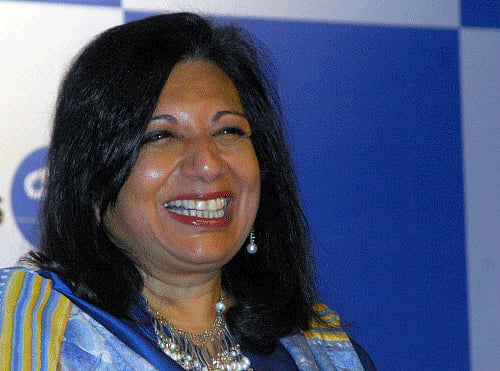
Three of the older Indian Institutes of Management (IIMs) are on the warpath to prevent the Human Resource Development (HRD) Ministry from braining a bill they feel seeks to give them degree-granting powers but take away autonomy.
A day after IIM-Ahmedabad came out in opposition of the bill, IIM-Bangalore chairperson Kiran Majumdar Shaw on Friday told Deccan Herald the premier B-schools would not allow the government to go ahead with the bill in its present form unless provisions that seek to give the Centre powers to “micro-manage and take full control” of the IIMs' affairs are dropped.
She said IIM-B and other premier B-schools have submitted to the Ministry their comments on the provisions of the draft Indian Institute of Management Bill, 2015.
“We hope the HRD Ministry will respond in a positive way. They need to change some of the provisions in the bill. The draft bill, in its present form, is not conducive to the spirit of what the government wants from the IIMs. The IIMs are world-class organisations. The government cannot take away the institutes' autonomy,” she said.
Joining its sister institutions IIM-Lucknow and Bangalore, IIM-A chairperson A M Naik and director Asish Nanda on Thursday slammed the HRD Ministry for introducing certain clauses in the bill they felt would take away the 16 premier B-schools' autonomy.
“(Under) the provisions of the bill, we need to take prior permission of the government in matters related to admission, courses, fee structure, establishment or maintenance of new buildings and the regulating powers of the academic council,” Naik told reporters at a press conference in Ahmedabad.
The institutes are opposing five clauses of the bill, which seek to give sweeping powers to the Centre. According to the draft bill, the Centre will have a final say in all the policy matters, and even fixing of fees. The HRD Ministry, however, remained tight-lipped on the issue.
All the IIMs had earlier supported the bill as it was formulated in consultation with them with the assurance that it aimed to give them degree-granting powers and set up a panel to discuss and decide on issues of common interest.
